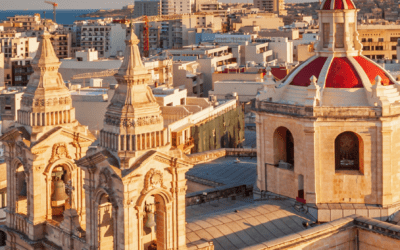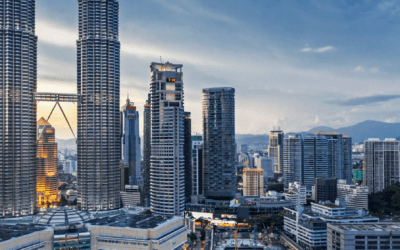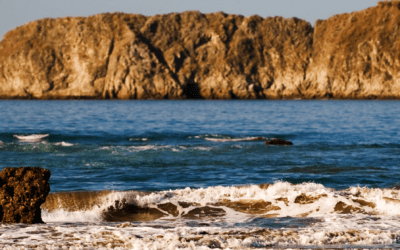We start with an overview of the country, including its history, its relationship with the United States and its impact on the Puerto Rican people. We also look at the economy of Puerto Rico, the challenges it faces, the tax benefits it offers to U.S. citizens and why it has become a popular destination for expats.
Finally we will look deeper into the exact legal status of the territory and of Puerto Ricans, the source of so much confusion over the years. Are Puerto Ricans U.S. citizens? Well, technically, yes, but not fully, as it turns out the real answer is more nuanced.
Are you a US citizen looking to move offshore? Nomad Capitalist can help. We assist high-net-worth individuals in assessing the best options offshore available to find which suits them best. Perhaps that’s Puerto Rico, or perhaps that’s further afield – but if you’re serious about offshore living and legal tax reduction, talk to us today.

Puerto Rican Citizenship:
The citizenship status of Puerto Ricans has been the cause of much confusion due to the island’s status as an unincorporated territory. This means the country has its own local government but ultimately is under the control of the US Congress, with the US president as head of state.
Those born in Puerto Rico automatically receive U.S. Citizenship, though do not have all of the exact same rights as Americans. For example, they cannot vote in presidential elections.
In addition to locally born Puerto Ricans, residents of Puerto Rico also include a high number of American expats, most notably entrepreneurs and investors looking to take advantage of the island’s lucrative tax breaks.
Puerto Rico: Country Profile
The Commonwealth of Puerto Rico is an unincorporated US territory located in the Caribbean.
The small island is directly east of the Dominican Republic and a total of 1,014 miles (1,631 km) from the US mainland. It uses the US dollar as currency.
The capital is San Juan, and although English is widely spoken, many Puerto Rican residents speak Spanish, so both English and Spanish are the country’s official languages.
The population is currently approximately 3.05 million people, and in addition to people born in Puerto Rico, there are also many expats, in particular American citizens, residing in Puerto Rico.
The Puerto Rican government enjoys autonomy in many areas, although the official head of state is the US President.
Puerto Rican citizens cannot vote in US elections, however, and have only fundamental constitutional rights rather than the full guarantees US citizens enjoy under the US Constitution.

Puerto Rico: Economy
As a small island with little to no natural resources, Puerto Rico’s economy is heavily reliant on its services industry, including its banking sector and other related financial services.
Other key sectors include real estate and tourism, plus a small agricultural sector.
In 2017 Hurricane Maria struck, killing thousands, wiping out around 80% of the country’s domestic crops and causing an estimated $94.4 billion in damages.
The subsequent economic hardship meant that the 2020 pandemic hit the island quite hard, further exacerbating the already declining economic conditions.
Caribbean countries have come to rely on investment, rather than debt, as a way to alleviate such problems, and Puerto Rico is no exception. This is why they offer generous tax incentives to Americans who want to retain their U.S. citizenship but still enjoy lower taxes.
We always recommend that our American clients explore both options, even just so you can get a more balanced view of things. Many approach us regarding moving offshore to Puerto Rico only to decide instead to seek a second citizenship elsewhere.
Sure, we understand how renouncing your US citizenship may seem like a big step until you realise how much you can save, how little you actually give up and how good it feels to finally be free of the IRS.
Puerto Rican Citizenship: Overview
Puerto Rican citizenship status is a somewhat confusing topic for a number of reasons.
Firstly, although it has its own constitution, Puerto Rico is not a sovereign state, it is a US territory, which means everyone born in Puerto Rico are US citizen but doesn’t have full citizenship rights, such as the right to vote in US elections.
So although Puerto Rico may exist as a country and its people share a unique Puerto Rican identity, one cannot technically be a citizen of Puerto Rico.
As per US law and the Supreme Court, people born on the island of Puerto Rico automatically become citizens of the United States.
This is why discussions about Puerto Rican nationality or citizenship can cause confusion.
Especially since while Puerto Ricans are classed as U.S. Citizens, they cannot vote in US elections.

Puerto Rico’s Territorial Status
To understand Puerto Rico’s current territorial status, you must first understand its past, so first, here’s a brief history.
The island of Puerto Rico was originally a Spanish colony until the Spanish-American War of 1898.
Following the war, which resulted in a US victory and crushing humiliation for Spain, Puerto Rico and other Spanish territories, were ceded to the US under the Treaty of Paris.
Puerto Rico’s status was updated in 1917 with a piece of legislation known as the Jones-Shafroth Act (more frequently referred to as the Jones Act).
This conferred a new political status on Puerto Rico, including the right to U.S. citizenship, but it wasn’t until 1952 that a new act was introduced, extending U.S. citizenship to all people born on Puerto Rican soil.
Puerto Rico has its own local government, and so, although all people born in Puerto Rico are US citizens by default, they cannot vote in US elections, only local ones.

Future Status Of Puerto Rico
Civil rights activists in Puerto Rico have long been calling for more autonomy, in particular, due to the disparity in rights between Puerto Ricans and other U.S. citizens and the resulting lack of political representation.
Recent tragedies like the 2017 hurricane, the pandemic and the slow response to both have intensified anger. According to a recent referendum, the majority of Puerto Ricans support a “51st state” solution.
However, an increasing number of Puerto Ricans would prefer that Puerto Rico become an independent sovereign state, completely apart from the United States.
Though is that altogether surprising?
The allure of American citizenship is not what it once was, especially with a rising debt ceiling, crumbling infrastructure and multiple challenges to the pre-eminence of the US dollar and American power globally.
So if more and more Puerto Ricans start to feel like Uncle Sam has become more hassle than he’s worth, perhaps they will stop their pursuit of enhanced US citizenship status and push harder for independence instead.
The potential addition of a new small, independent island into the Caribbean offshore system, conferring a new nationality, a new passport, and a new set of tax incentives for investors certainly excites us, but don’t expect that to happen any time soon.
Want To Explore Your Options?
In the meantime, however, you should give serious consideration to Puerto Rico as an offshore destination.
Living in Puerto Rico is an attractive option for many high-net-worth individuals, and it’s easily one of the most expat-friendly destinations for Americans. It’s just like home since it technically still is home, yet the country has its own unique flavour that’s quite unlike any of the 50 states.
As a Puerto Rican resident, you can enjoy lower taxes without having to renounce your U.S. citizenship, though there are still some important considerations you need to be aware of.
At the end of the day, it’s all about finding the best solution for your precise needs, and that’s why you need expert advice you can rely on. If you’re looking for offshore living and legal tax reduction solutions, talk to Nomad Capitalist today.
Puerto Rican Citizenship FAQ
Yes. Since Puerto Rico is a US territory, there is no such thing as Puerto Rican citizenship. All individuals born in Puerto Rico are automatically U.S. Citizens.
Yes. Since Puerto Rico is a US territory, there is no such thing as Puerto Rican citizenship. All individuals born in Puerto Rico are automatically US Citizens. There is also a Puerto Rican citizenship certificate, “Certificado de Ciudadanía Puertorriqueña.” With that, claiming citizenship in Spain in two years rather than the average ten years is possible.
However, Puerto Ricans do not enjoy the full benefits of U.S. Citizenship, as they cannot vote in US elections, only local ones.
No. Originally the territory belonged to Spain.
Puerto Rico only became a US territory after the Treaty of Paris of 1898, following Spain’s defeat during the Spanish-American war.
As a direct result, the US began to govern Puerto Rico, and the country officially became a US territory.
No. The official status and title of Puerto Rico is that of an unincorporated territory.
Although Puerto Rico has its own local government, the head of state is still the US president, but Puerto Ricans have no say in who that is as they cannot vote in US elections.
This lack of representation is an issue of contention which is why many Puerto Rican residents feel as though the politicians in Washington treat Puerto Rico as though it was a colony since they have no democratic right to elect their head of state.
In addition to the 50 US states, the list of unincorporated territories includes:
Puerto Rico
The US Virgin Islands
American Samoa
Guam
The Northern Mariana Islands
Puerto Rico and the US Virgin Islands are both located in the Caribbean, while the others are in the
Puerto Rico’s political status does not look like it’s going to change any time soon, though, as recent events have shown, the world of geopolitics can change quickly overnight.
Puerto Ricans are growing increasingly tired of the status quo, the majority would like better representation and to be able to enjoy the exact same rights and privileges as other US citizens on the mainland.
Hence the growing calls for Puerto Rican independence. Could an independent Puerto Rico hold its own without US support? Would it offer exciting new tax incentives and citizenship by investment programs? Fun to think about, but we don’t expect any changes to the status quo for the foreseeable future.









